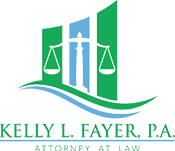Last month we talked about the importance of establishing a power of attorney before it becomes necessary for the court to intervene and make decisions for your family. This month let’s look at what happens when guardianship must be decided on behalf of your loved one.
Sometimes guardianship is temporary, due to an emergency. Oftentimes, however, legal guardianship (by a family member) is sought after if a senior loved one has been diagnosed with some type of cognitive impairment such as dementia or Alzheimer’s and is unable to care for themselves.
What is Guardianship?
According to Florida courts, a guardian is a surrogate decision-maker appointed by the court to make personal and/or financial decisions for a minor or for an adult with mental or physical disabilities. The term used for the subject of a legal guardianship is a “ward.”
Florida law requires the court to appoint a guardian for minors in circumstances where the parents die or become incapacitated, or if a child receives an inheritance or proceeds of a lawsuit or insurance policy exceeding the amount allowed by statute.
Adult guardianship is the process by which the court finds an individual’s ability to make decisions so impaired that the court gives the right to make decisions to another person. Guardianship is only warranted when no less restrictive alternative, such as durable power of attorney, is found by the court to be appropriate and available.
Florida law allows both voluntary and involuntary guardianship. A voluntary guardianship may be established for an adult who, though mentally competent, is incapable of managing his or her own estate and who voluntarily petitions for the appointment.
Accordingly, Florida law provides for limited as well as plenary adult guardianship. A limited guardianship is appropriate if the court finds the ward lacks the capacity to do some, but not all, of the tasks necessary to care for his or her person or property; and if the individual does not have pre-planned, written instructions for all aspects of his or her life. A plenary guardian is a person appointed by the court to exercise all delegable legal rights and powers of the adult ward after the court makes a finding of incapacity. Wards in plenary guardianships are, by definition, unable to care for themselves.1
Duties of a Guardian
A guardian has a duty of care toward a vulnerable adult or minor. In plain terms, this means that the guardian must put the interests of the ward first.
The guardian may have many responsibilities, such as:
- Deciding where the person will live
- Keeping them healthy
- Preparing a budget based on their finances
- Arranging for recreation and social contact
To give you an idea of the many responsibilities involved, most states’ handbooks for appointed guardians are generally over 300 pages.
Pitfalls of Guardianship
There are several pitfalls to be aware of before making the decision to go through guardianship proceedings.
The process of seeking guardianship can be long and involved. There are many hoops to jump through along the way.
- A guardianship case requires the filing of numerous legal documents. There will be at least one court proceeding and/or hearing, but probably more.
- The adult children/petitioners will have to prove the proposed ward is incapacitated, unable to care for themselves, or make their own decisions – thus in need of a guardian. They will have to present evidence about the ward’s mental capacity, as well as their health. Can the ward handle their financial affairs? What about their ability to provide for their own personal care, perform activities of daily living (toileting, dressing, eating, etc.) or maintain safe living conditions?
- The appointment of a guardian can be expensive. If a senior parent opposes the appointment of guardians (or a sibling or other person objects), court approval will take much longer and will become more expensive.
- Becoming a guardian of the person means you will be in control of every facet of the ward’s world. Researching and making difficult decisions on behalf of the ward may be stressful and draining on your own health and emotional well-being.
- A guardian has a legal responsibility to make at least one annual report to the court. You’ll have to provide information about financial matters (which bills were paid from which bank accounts, tax returns, asset inventories, etc.).
The Law Office of Kelly L. Fayer, P.A. was established to serve members of our community. Whether you need assistance now or are planning for the future, it would be a privilege to help you. We strive to provide quality service while offering personal attention to each of our clients.


